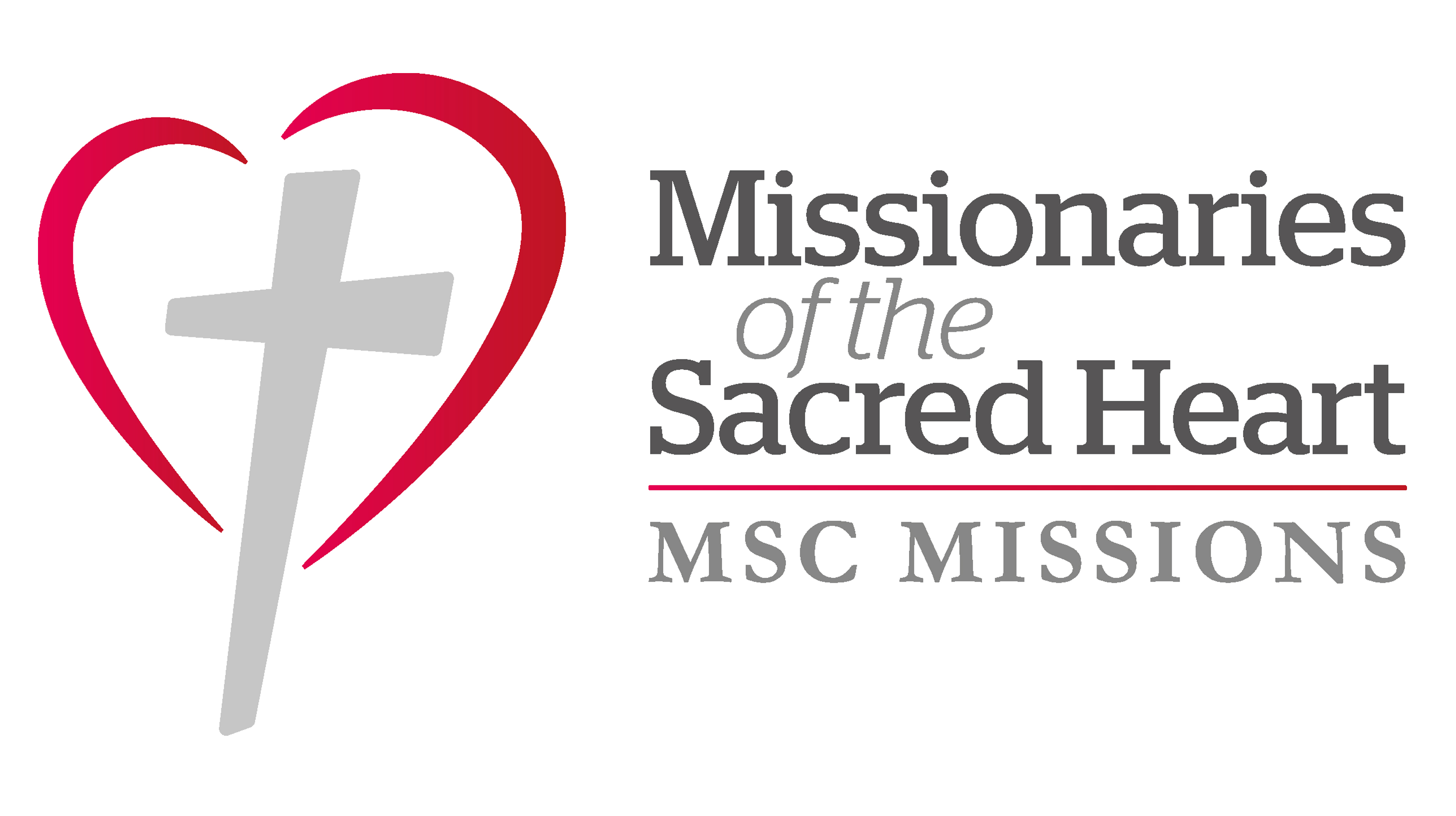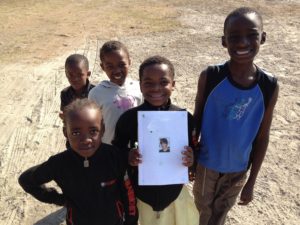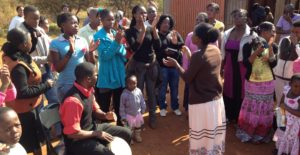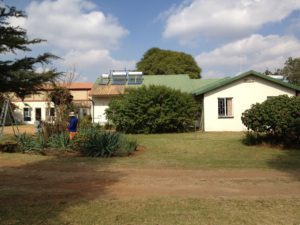Pope Benedict XVI
 The source of every perfect gift is God who is Love – Deus caritas est: “Whoever remains in love remains in God and God in him” (1 Jn 4:16). Sacred Scripture tells the story of this original bond between God and man, which precedes creation itself. Writing to the Christians of the city of Ephesus, Saint Paul raises a hymn of gratitude and praise to the Father who, with infinite benevolence, in the course of the centuries accomplishes his universal plan of salvation, which is a plan of love. In his Son Jesus – Paul states – “he chose us, before the foundation of the world, to be holy and without blemish before him in love” (Eph 1:4). We are loved by God even “before” we come into existence! Moved solely by his unconditional love, he created us “not … out of existing things” (cf. 2 Macc 7:28), to bring us into full communion with Him.
The source of every perfect gift is God who is Love – Deus caritas est: “Whoever remains in love remains in God and God in him” (1 Jn 4:16). Sacred Scripture tells the story of this original bond between God and man, which precedes creation itself. Writing to the Christians of the city of Ephesus, Saint Paul raises a hymn of gratitude and praise to the Father who, with infinite benevolence, in the course of the centuries accomplishes his universal plan of salvation, which is a plan of love. In his Son Jesus – Paul states – “he chose us, before the foundation of the world, to be holy and without blemish before him in love” (Eph 1:4). We are loved by God even “before” we come into existence! Moved solely by his unconditional love, he created us “not … out of existing things” (cf. 2 Macc 7:28), to bring us into full communion with Him.
In great wonderment before the work of God’s providence, the Psalmist exclaims: “When I see the heavens, the work of your hands, the moon and the stars which you arranged, what is man that you should keep him in mind, mortal man that you care for him?” (Ps 8:3-4). The profound truth of our existence is thus contained in this surprising mystery: every creature, and in particular every human person, is the fruit of God’s thought and an act of his love, a love that is boundless, faithful and everlasting (cf. Jer 31:3). The discovery of this reality is what truly and profoundly changes our lives. In a famous page of the Confessions, Saint Augustine expresses with great force his discovery of God, supreme beauty and supreme love, a God who was always close to him, and to whom he at last opened his mind and heart to be transformed: “Late have I loved you, O Beauty ever ancient, ever new, late have I loved you! You were within me, but I was outside, and it was there that I searched for you. In my unloveliness I plunged into the lovely things which you created. You were with me, but I was not with you. Created things kept me from you; yet if they had not been in you they would have not been at all. You called, you shouted, and you broke through my deafness. You flashed, you shone, and you dispelled my blindness. You breathed your fragrance on me; I drew in breath and now I pant for you. I have tasted you, now I hunger and thirst for more. You touched me, and I burned for your peace.” (X, 27.38). With these images, the Saint of Hippo seeks to describe the ineffable mystery of his encounter with God, with God’s love that transforms all of life.
It is a love that is limitless and that precedes us, sustains us and calls us along the path of life, a love rooted in an absolutely free gift of God. Speaking particularly of the ministerial priesthood, my predecessor, Blessed John Paul II, stated that “every ministerial action – while it leads to loving and serving the Church – provides an incentive to grow in ever greater love and service of Jesus Christ the head, shepherd and spouse of the Church, a love which is always a response to the free and unsolicited love of God in Christ” (Pastores Dabo Vobis, 25). Every specific vocation is in fact born of the initiative of God; it is a gift of the Love of God! He is the One who takes the “first step”, and not because he has found something good in us, but because of the presence of his own love “poured out into our hearts through the Holy Spirit” (Rom 5:5).

Ordination of Yonys Mendoza MSC
In every age, the source of the divine call is to be found in the initiative of the infinite love of God, who reveals himself fully in Jesus Christ. As I wrote in my first Encyclical, Deus Caritas Est, “God is indeed visible in a number of ways. In the love-story recounted by the Bible, he comes towards us, he seeks to win our hearts, all the way to the Last Supper, to the piercing of his heart on the Cross, to his appearances after the Resurrection and to the great deeds by which, through the activity of the Apostles, he guided the nascent Church along its path. Nor has the Lord been absent from subsequent Church history: he encounters us ever anew, in the men and women who reflect his presence, in his word, in the sacraments, and especially in the Eucharist” (No. 17).
The love of God is everlasting; he is faithful to himself, to the “word that he commanded for a thousand generations” (Ps 105:8). Yet the appealing beauty of this divine love, which precedes and accompanies us, needs to be proclaimed ever anew, especially to younger generations. This divine love is the hidden impulse, the motivation which never fails, even in the most difficult circumstances.
Dear brothers and sisters, we need to open our lives to this love. It is to the perfection of the Father’s love (cf. Mt 5:48) that Jesus Christ calls us every day! The high standard of the Christian life consists in loving “as” God loves; with a love that is shown in the total, faithful and fruitful gift of self. Saint John of the Cross, writing to the Prioress of the Monastery of Segovia who was pained by the terrible circumstances surrounding his suspension, responded by urging her to act as God does: “Think nothing else but that God ordains all, and where there is no love, put love, and there you will draw out love” (Letters, 26).
It is in this soil of self-offering and openness to the love of God, and as the fruit of that love, that all vocations are born and grow. By drawing from this wellspring through prayer, constant recourse to God’s word and to the sacraments, especially the Eucharist, it becomes possible to live a life of love for our neighbours, in whom we come to perceive the face of Christ the Lord (cf. Mt 25:31-46). To express the inseparable bond that links these “two loves” – love of God and love of neighbour – both of which flow from the same divine source and return to it, Pope Saint Gregory the Great uses the metaphor of the seedling: “In the soil of our heart God first planted the root of love for him; from this, like the leaf, sprouts love for one another.” (Moralium Libri, sive expositio in Librum B. Job, Lib. VII, Ch. 24, 28; PL 75, 780D).
These two expressions of the one divine love must be lived with a particular intensity and purity of heart by those who have decided to set out on the path of vocation discernment towards the ministerial priesthood and the consecrated life; they are its distinguishing mark. Love of God, which priests and consecrated persons are called to mirror, however imperfectly, is the motivation for answering the Lord’s call to special consecration through priestly ordination or the profession of the evangelical counsels. Saint Peter’s vehement reply to the Divine Master: “Yes, Lord, you know that I love you” (Jn 21:15) contains the secret of a life fully given and lived out, and thus one which is deeply joyful.

Fr. Tom O'Brien MSC at a soup kitchen in Venezuela
The other practical expression of love, that towards our neighbour, and especially those who suffer and are in greatest need, is the decisive impulse that leads the priest and the consecrated person to be a builder of communion between people and a sower of hope. The relationship of consecrated persons, and especially of the priest, to the Christian community is vital and becomes a fundamental dimension of their affectivity. The Curé of Ars was fond of saying: “Priests are not priests for themselves, but for you” (Le cure d’Ars. Sa pensée – Son cœur, Foi Vivante, 1966, p. 100).
Dear brother bishops, dear priests, deacons, consecrated men and women, catechists, pastoral workers and all of you who are engaged in the field of educating young people: I fervently exhort you to pay close attention to those members of parish communities, associations and ecclesial movements who sense a call to the priesthood or to a special consecration. It is important for the Church to create the conditions that will permit many young people to say “yes” in generous response to God’s loving call.
The task of fostering vocations will be to provide helpful guidance and direction along the way. Central to this should be love of God’s word nourished by a growing familiarity with sacred Scripture, and attentive and unceasing prayer, both personal and in community; this will make it possible to hear God’s call amid all the voices of daily life. But above all, the Eucharist should be the heart of every vocational journey: it is here that the love of God touches us in Christ’s sacrifice, the perfect expression of love, and it is here that we learn ever anew how to live according to the “high standard” of God’s love. Scripture, prayer and the Eucharist are the precious treasure enabling us to grasp the beauty of a life spent fully in service of the Kingdom.
It is my hope that the local Churches and all the various groups within them, will become places where vocations are carefully discerned and their authenticity tested, places where young men and women are offered wise and strong spiritual direction. In this way, the Christian community itself becomes a manifestation of the Love of God in which every calling is contained. As a response to the demands of the new commandment of Jesus, this can find eloquent and particular realization in Christian families, whose love is an expression of the love of Christ who gave himself for his Church (cf. Eph 5:32). Within the family, “a community of life and love” (Gaudium et Spes, 48), young people can have a wonderful experience of this self-giving love. Indeed, families are not only the privileged place for human and Christian formation; they can also be “the primary and most excellent seed-bed of vocations to a life of consecration to the Kingdom of God” (Familiaris Consortio, 53), by helping their members to see, precisely within the family, the beauty and the importance of the priesthood and the consecrated life. May pastors and all the lay faithful always cooperate so that in the Church these “homes and schools of communion” may multiply, modelled on the Holy Family of Nazareth, the harmonious reflection on earth of the life of the Most Holy Trinity.
With this prayerful hope, I cordially impart my Apostolic Blessing to all of you: my brother bishops, priests, deacons, religious men and women and all lay faithful, and especially those young men and women who strive to listen with a docile heart to God’s voice and are ready to respond generously and faithfully.








 The source of every perfect gift is God who is Love – Deus caritas est: “Whoever remains in love remains in God and God in him” (1 Jn 4:16). Sacred Scripture tells the story of this original bond between God and man, which precedes creation itself. Writing to the Christians of the city of Ephesus, Saint Paul raises a hymn of gratitude and praise to the Father who, with infinite benevolence, in the course of the centuries accomplishes his universal plan of salvation, which is a plan of love. In his Son Jesus – Paul states – “he chose us, before the foundation of the world, to be holy and without blemish before him in love” (Eph 1:4). We are loved by God even “before” we come into existence! Moved solely by his unconditional love, he created us “not … out of existing things” (cf. 2 Macc 7:28), to bring us into full communion with Him.
The source of every perfect gift is God who is Love – Deus caritas est: “Whoever remains in love remains in God and God in him” (1 Jn 4:16). Sacred Scripture tells the story of this original bond between God and man, which precedes creation itself. Writing to the Christians of the city of Ephesus, Saint Paul raises a hymn of gratitude and praise to the Father who, with infinite benevolence, in the course of the centuries accomplishes his universal plan of salvation, which is a plan of love. In his Son Jesus – Paul states – “he chose us, before the foundation of the world, to be holy and without blemish before him in love” (Eph 1:4). We are loved by God even “before” we come into existence! Moved solely by his unconditional love, he created us “not … out of existing things” (cf. 2 Macc 7:28), to bring us into full communion with Him.

